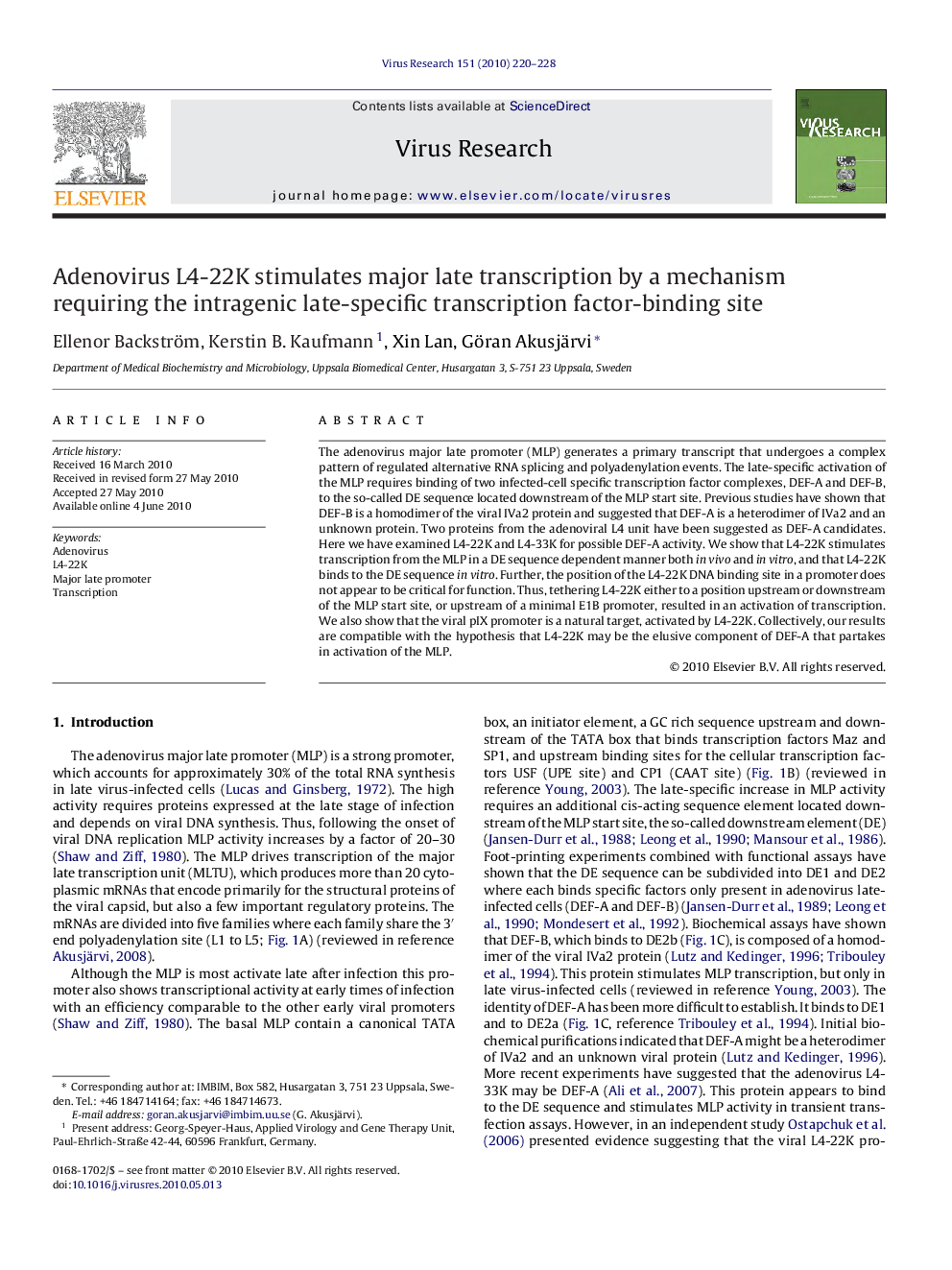| Article ID | Journal | Published Year | Pages | File Type |
|---|---|---|---|---|
| 3429236 | Virus Research | 2010 | 9 Pages |
The adenovirus major late promoter (MLP) generates a primary transcript that undergoes a complex pattern of regulated alternative RNA splicing and polyadenylation events. The late-specific activation of the MLP requires binding of two infected-cell specific transcription factor complexes, DEF-A and DEF-B, to the so-called DE sequence located downstream of the MLP start site. Previous studies have shown that DEF-B is a homodimer of the viral IVa2 protein and suggested that DEF-A is a heterodimer of IVa2 and an unknown protein. Two proteins from the adenoviral L4 unit have been suggested as DEF-A candidates. Here we have examined L4-22K and L4-33K for possible DEF-A activity. We show that L4-22K stimulates transcription from the MLP in a DE sequence dependent manner both in vivo and in vitro, and that L4-22K binds to the DE sequence in vitro. Further, the position of the L4-22K DNA binding site in a promoter does not appear to be critical for function. Thus, tethering L4-22K either to a position upstream or downstream of the MLP start site, or upstream of a minimal E1B promoter, resulted in an activation of transcription. We also show that the viral pIX promoter is a natural target, activated by L4-22K. Collectively, our results are compatible with the hypothesis that L4-22K may be the elusive component of DEF-A that partakes in activation of the MLP.
